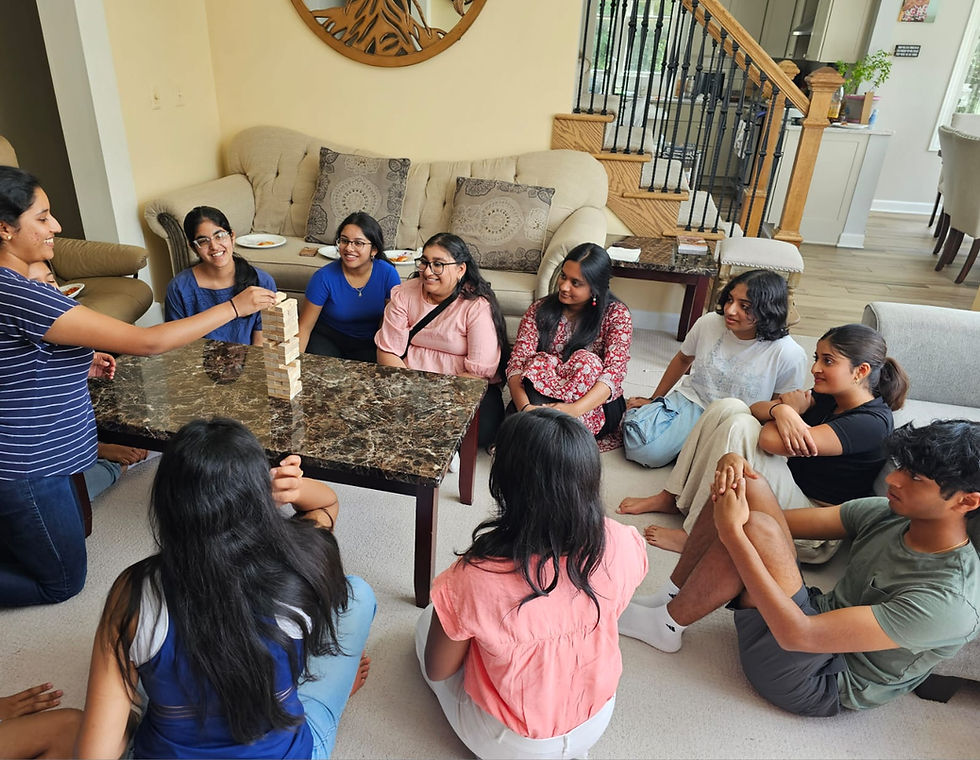CORDUSA and the United Nations Sustainable Development Goals
- vidyaramanathan
- Jul 20, 2023
- 2 min read
Part of what makes CORD and CORDUSA’s approach to community service and engagement unique is our goal of creating holistic, sustainable change. Creating sustainable change means that the programs are not dependent on our organization, but we provide knowledge, skill, and infrastructure so people become change agents in their own communities. One of the many ways CORD and CORDUSA implement sustainable change in communities is by using the United Nations Sustainable Development Goals as a guideline. In 2015, 193 of the members of the United Nations adopted the 17 Sustainable Development Goals, recognizing how each of these goals can push the world towards “end[ing] poverty, protect[ing] the planet, and ensur[ing] that by 2030 all people enjoy peace and prosperity.”
To understand CORD’s contributions to these global goals, we have listed the goals along with a U.N. synopsis of what they mean from a change-making standpoint.
No Poverty - Providing essential community services and helping those experiencing conflict and climate-based disasters
Zero Hunger - Promoting sustainable agriculture and local farmers and work to provide people with nutritious food
Good Health and Well-Being - Reducing preventable deaths through increased access to healthcare and awareness of health issues
Quality Education - Ensuring all have access to equitable and quality education
Gender Equality - Providing women resources to get an education or join the workforce to end gender-based discrimination
Clean Water and Sanitation - Protecting water-related ecosystems, providing sanitation facilities, and encouraging hygiene to ensure adequate and safe drinking water
Affordable and Clean Energy - Investing in sustainable power and improving energy productivity to ensure energy for all
Decent Work and Economic Growth - Taking effective measures to eradicate slavery and human trafficking, encouraging entrepreneurship and job creation to achieve full and productive employment
Industry, Innovation, and Infrastructure - Providing access to the Internet in developing nations to foster innovation
Reduced Inequalities - Improving the regulation of the financial market and development assistance to bridge the gap of income inequality
Sustainable Cities and Communities - Creating green public spaces and improving public transport in participatory and inclusive ways
Responsible Consumption and Production - Halving food waste to create more efficient supply chains and help food security
Climate Action - Limiting the mean temperature rise through increased investment and using existing technologies
Life Below Water - Protecting marine ecosystems from pollution and enhancing the conservation of ocean-based resources
Life on Land - Reducing loss of biodiversity and natural habitats to help food/water security and climate change
Peace, Justice, and Strong Institutions - Promoting human rights and reducing violence by mitigating the flow of illegal arms
Partnership for the Goals - Promoting international trade and helping developing nations increase exports to achieve a trading system that is fair to all
For more information about the UN SDGs, visit this link: https://www.undp.org/sustainable-development-goals?gclid=CjwKCAjwhdWkBhBZEiwA1ibLmANGApbg-mD2LSNJFfffg9o-P3XcP8Q2yPximAbB2lnC9WAizq_zvRoCKMwQAvD_BwE or https://tinyurl.com/CORDUNSDGs
- Written by Ava and Yash Srivastava






Comments